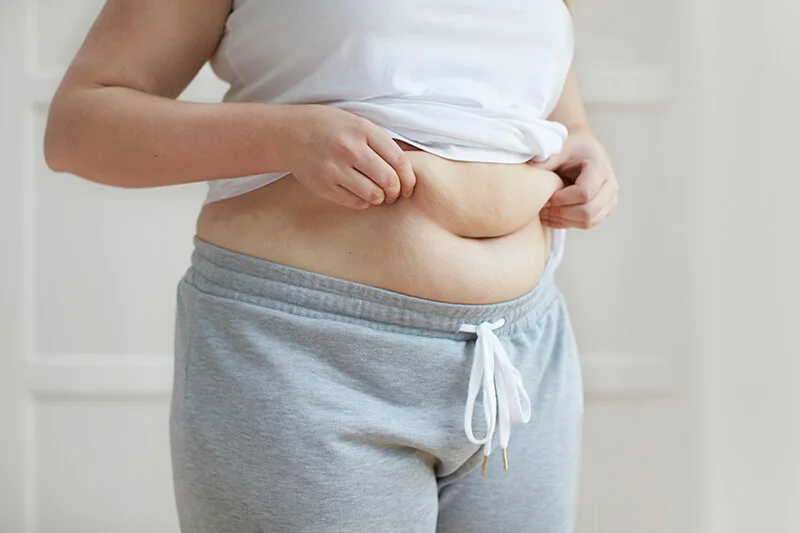Beauty is not a question of dress size. And being overweight is no reason to hide or be ashamed. Although the extra weight affects the appearance and health of both sexes equally, being overweight seems to be more acceptable for men than for women. What could be the reason for this?
Is a beer belly less bad?
People who do not conform to the propagated weight norms certainly don’t have it easy. But while a beer belly is taken for granted in men, women are measured differently. A beer belly stands for wealth and power. Many people associate beer bellies with sociable gentlemen who enjoy life to the full. In a woman, a big belly tends to symbolise laziness and a lack of willpower. Women’s bellies are only socially accepted when they grow “naturally”, i.e. during pregnancy. Women are clearly under more pressure due to stereotypes and prejudices about obesity. This can have a negative impact on their body image and self-esteem.
Whether man or woman: Being overweight can result in comorbidities
Despite the different levels of acceptance, being overweight has the same effect on the health of women and men. Because obesity increases the risk of numerous health problems and secondary diseases.
Overweight and beauty ideals: Slim equals beautiful?
The good news: Slim equals beautiful is slowly coming to an end. The media and the fashion market have changed in recent years. The principle of the new body positivity is that all people and body shapes are beautiful. The result: The self-esteem of women who do not conform to common norms grows – albeit timidly. The reason for the slow pace of change is the way women view themselves. And how they deal with criticism. According to a US study, women are significantly more susceptible to internalising negative weight-related messages. The stigmatisation also makes them more susceptible to further weight gain. The more internalised the weight stigma, the higher the percentage of belly fat in women, according to the research. Interestingly, this effect could not be demonstrated in the men participating in the study, although they consistently had more abdominal fat than the women.
Nobody needs to be ashamed of obesity
We should finally say goodbye to unrealistic ideals of beauty and try out a more loving approach to our bodies – after all, no body is perfect. We all have our beauty spots. Anyone who manages to feel comfortable in their body and accept it as it is also lives a healthier life than someone who constantly looks down on themselves. Beauty should definitely not be measured by dress size or weight. But that doesn’t mean you can now lean back and relax. Body positivity is not a call to be fat. After all, as mentioned above, weight and health are closely related.
Obesity: Is it your own fault?
You’re not the only one to blame for being overweight! Obesity has many causes. It is not a self-inflicted disease. There are numerous factors that favour obesity, such as genes, sleep disorders, stress or our environment, in which there are simply far too many unhealthy (but tasty) foods available around the clock.




